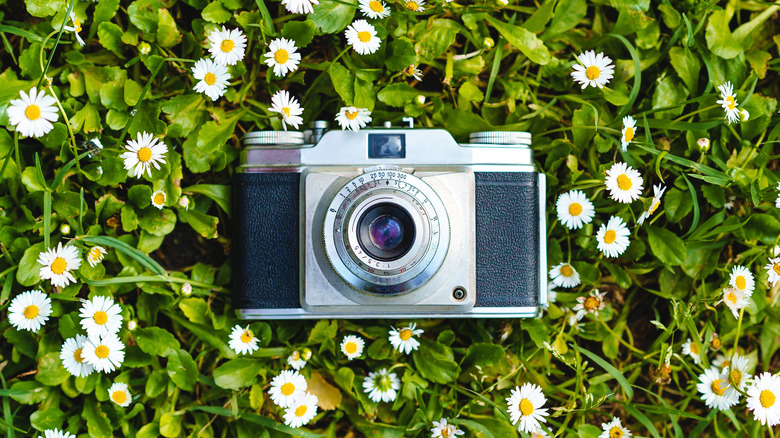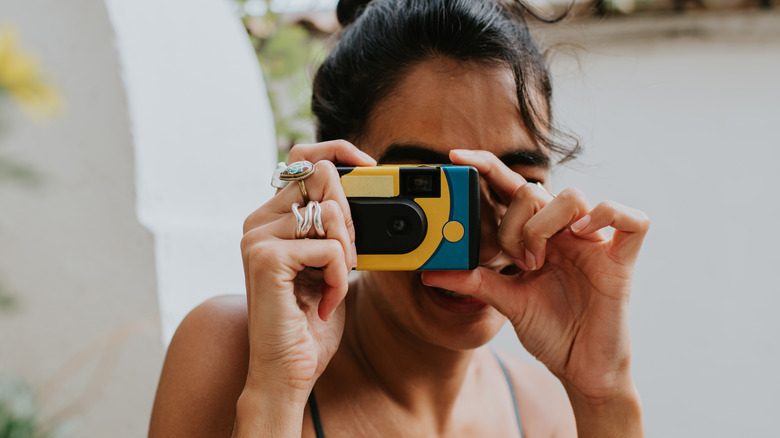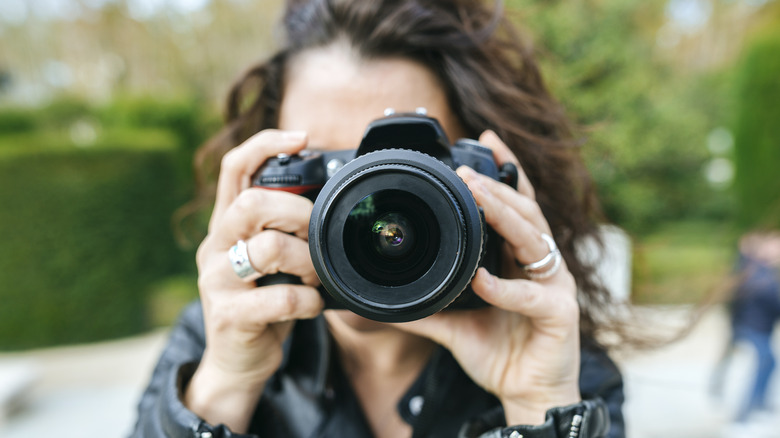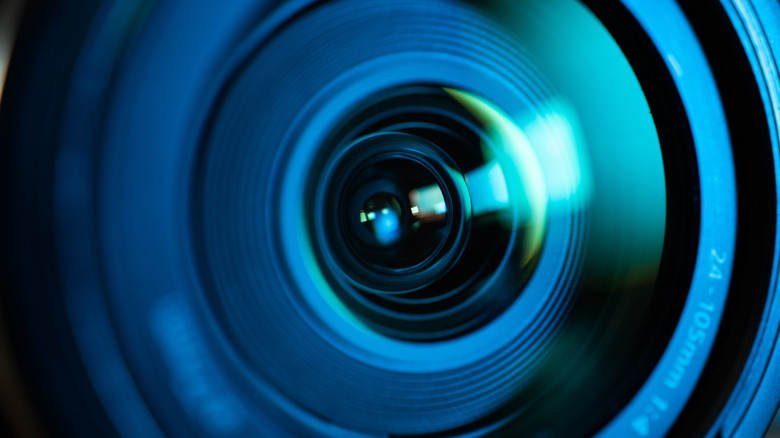Film Vs. Digital Camera: Which One Is Better If You Want To Level Up Your Photography?
For hundreds of years, humans have used cameras to capture everything from landscapes — like the breathtaking destinations every photographer needs to visit — to key moments in history for future viewing. Nowadays, thanks to phones, the vast majority of Earth's population has a camera readily available at all times. Picture-taking has even grown into a massive industry, with photographers accepting gigs at weddings, graduations, sporting events, and more to cement memories in black and white and color.
For others, photography is merely a hobby. Personally, I've taken photography just as seriously as a hobby as I have as a professional endeavor, agonizing over the smallest details to get the perfect shot and finding new ways to step up my game. Not only is this process fun to go through, but it has made me more capable of meeting the needs of clients as my skills have improved.
In short, photography is an art form. There are core tenets of the medium that I and many other photographers abide by, all kinds of equipment worth trying out (and tons of camera tech that is a total waste of money for beginners), and even essential phone apps every photographer should have installed. Then there's the matter of which photography method one wants to master: film or digital. Throughout my years as an amateur and later professional photographer, I've found that both have their merits and their drawbacks, and there's nothing wrong with giving both an honest shot, but which one is best for those seeking to take their photography to the next level?
What to know about film photography
Film photography may be the older of the two photography forms out there, and it may not be as popular in the modern era, but it still has a lot to offer. For one, the image quality of 35-millimeter or 120-millimeter is a sight to behold. The organic grain lends added depth and texture to the captured images, as do the more rich colors and vivid details that can't be fully replicated by digital photography. Film cameras generally take images at a higher resolution than most digital ones, plus a lot of older used film cameras can be acquired for relatively cheap. I've personally taken to buying cheap film cameras from thrift stores, just to try out without dropping too much money. Some have let me down, while others have been fun to use and provided unique opportunities to hone my craft.
While there's a lot to appreciate about film photography, it's not without limitations. First and foremost is the fact that you can't see your images immediately, unless you're using an instant camera, of which there are plenty that are worth your money, that dispenses photos instantaneously. There's also the matter of film itself, which can become quite unwieldy and off-putting for first time film photographers.
You have to know the proper size, exposure, and strengths of the specific brand you're buying from. I've wasted more than a few rolls in my day due to everything from improperly loading it into the camera to overexposing it, resulting in incredibly washed out or downright ruined images. Overall, you probably want to be selective and intentional with your shots. Otherwise, you'll spend a ton of time taking photos you don't like and waste a good amount of money having those duds developed.
What to know about digital photography
When looking at digital cameras, it becomes abundantly clear that the world of cameras has come a long way since film was the standard. Digital cameras take many of the cons of film and push them aside. Want to see your images as you take them? No problem. Rather recharge a battery and store hundreds of photos on a memory card instead of buying film and having to wait for a handful to be developed? Go for it. Digital cameras are also more lightweight and many allow you to edit your photos within the camera itself. Most digital cameras out there also allow for video recording, too, and include features we'll likely never see in the average smartphone camera.
As for the negatives of digital photography, there are a few. The main one is the cost, as new and used digital cameras of decent quality can get rather expensive. For instance, the flawed masterpiece that is the Leica SL3 retails for an astounding $6,995. Do enough digging, though, and you could find some great cheap digital cameras these days. The batteries should also be considered, as many digital cameras require specialized ones not often found in the battery section of your local grocery store.
This has made buying used digital cameras a bit of a hassle in my experience, as it can be hard to track down working batteries for older models or replacements from third party companies. Due to the nature of digital sensors and how they go about capturing color gradients, shadows, and highlights, digital cameras often fail to replicate the same colors and level of nuance found in film.
The verdict
So, which camera is best to bring you into the next phase of your photography journey? Well, with the differences between film and digital in mind, it all comes down to your style.
Simply put, film cameras are for the more dedicated and patient of photographers. You should be specific with the few shots you're granted on a roll of film, and you either have to learn how to develop them yourself or wait around for someone else to do it. Once you get all of your shots together and developed, though, the color and texture quality will prove unmatched. All in all, film cameras can be frustrating, a bit expensive to get working, and lend themselves to common mistakes for beginner photographers, but with time, practice, and study, you can make incredible things happen with them.
Meanwhile, digital cameras are better suited for those with a desire to experiment and try things out. You have the freedom to take as many pictures as your memory card and battery will allow, and you can sift through them as soon as they're taken. No tedious development needed. Of course, you do sacrifice a bit of quality and color to make it all happen, but if you're shutter-happy and want a near-instantly-accessible collection of pictures to be proud of, then there's no shame in going digital.
I and countless others have found photography to be a fun and fulfilling hobby that can be a fruitful business venture. To find success at either, though, figuring out which format between film and digital — or a combination of the two — suits you is the key.



